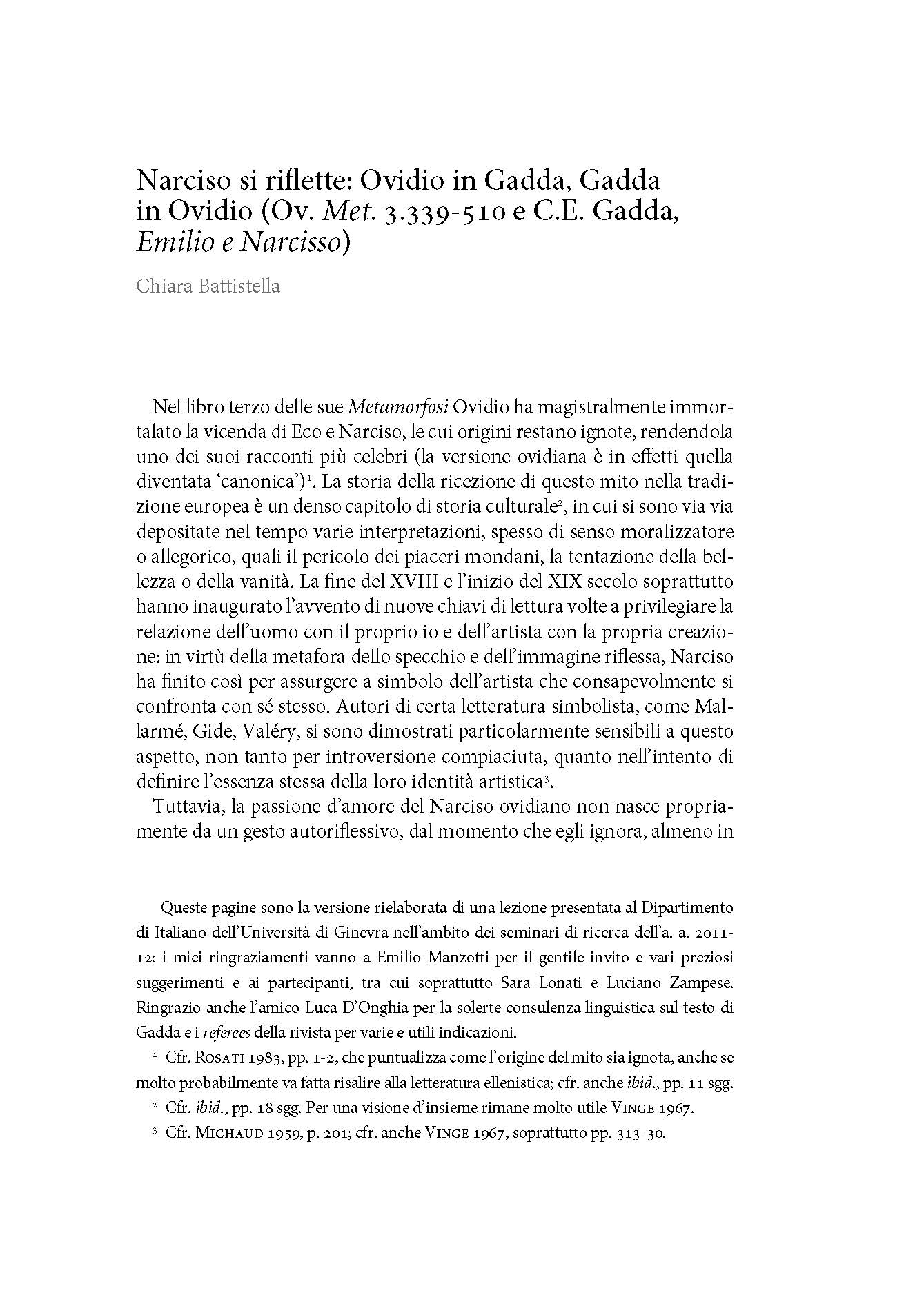Narciso si riflette: Ovidio in Gadda, Gadda in Ovidio (Ov. Met. 3.339-510 e C.E. Gadda, Emilio e Narcisso)
Contenuto principale dell'articolo
Abstract
The myth of Narcissus is one of the most popular stories from classical antiquity. Ovid dedicated memorable lines to it in Book 3 of hisMetamorphoses, which are traditionally considered to be the foundational text among the various other retellings of the myth. Its success is primarily proven by the considerable number of rewritings produced across the centuries in many literatures. This paper focuses specifically on Carlo Emilio Gadda’s Emilio e Narcisso, which has, thus far, been one of the most overlooked nineteenth-century rewritings of the Narcissus myth, despite its high literary value. The article offers a close reading of Gadda’s essay in strict relation with the Ovidian text, which the modern author astutely rehashes by injecting new meanings into it and by having recourse to his well-known peculiar idiolect.

